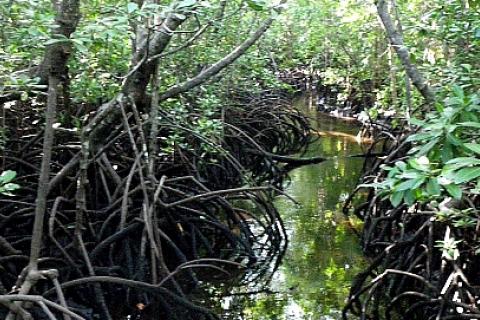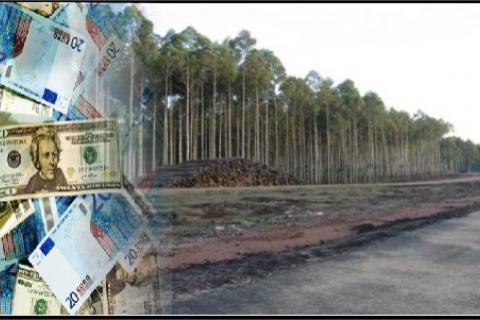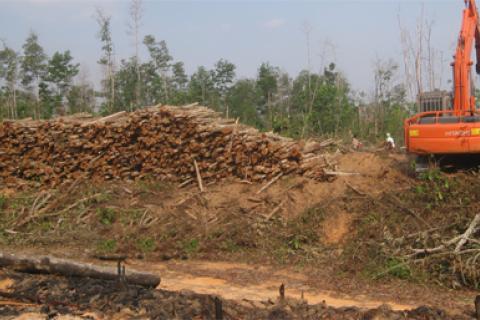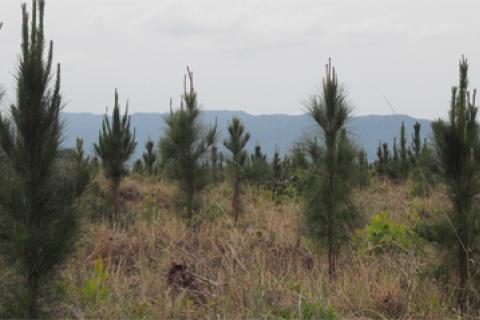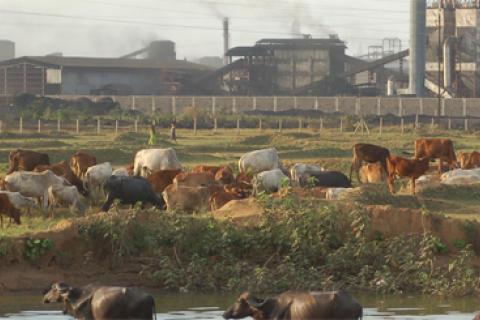The land grabbing effect of conservation projects is rarely considered in the current discussion of global ‘land grabbing’. In Tanzania, where around 40 % of the land area of the country is under some form of environmental protection, conservation areas have steadily increased since colonial times, leading to loss of land and access for small‐scale farmers, pastoralists and fisherfolk.
Bulletin articles
The news reports out of Europe and the United States describe situations of severe financial-economic crises, with little or no economic growth, a lack of investment and high unemployment. Yet since this crisis began roughly five years ago we have also seen intensive and increasingly greater investment in land and industrial plantations of trees and other crops in Latin America, Africa and Asia, through a variety of investment funds, most of them based in the crisis-stricken industrialized countries of the global North.
The expansion of large-scale monoculture tree plantations in the global South dates back to the 20th century, becoming particularly marked in the 1960s, and is expected to continue at an ever increasing rate in the 21st century alongside the growing globalization of the economy and markets.
The emergence of “Paper Dragons”. (Available in Indonesian).
It was recently reported that the pulp and paper consortium Montes del Plata, a joint venture between Swedish-Finnish forestry giant Stora Enso and the Chilean corporation Arauco, has sold 45,000 hectares of land in the departments of Tacuarembó and Rivera, most of it covered by tree plantations, to the U.S. investment management firm GMO. (1)
India Climate Justice, a collective of social movements, trade unions, other organizations and individuals, has issued on last June 25 a statement stressing that the devastating loss of life, livelihoods, and homes in Uttarakhand and beyond, caused by extreme unseasonal rains in North India, is a tragedy that indicates a global warming induced climate change phenomenon.
Members of the National Peasants Union, known as UNAC, in Mozambique, and representatives of international nongovernmental organizations following the Tokyo International Conference on African Development have called on the governments of Japan, Brazil and Mozambique to halt the ProSavana program.
More than 100 organisations (including a number of coalitions representing many more groups) signed up to an Open Letter to EU decision makers on EU biofuels policy - and from every continent.
After the Ecuadorian president announced plans to carry out an evaluation on securing financing for the Yasuní-ITT project, reflecting a clear interest in oil drilling, the ‘Guardians of Yasuní’ initiative organized a vigil in defence of the national park and its forests. The organizers stated: “Sumak Kawsay (Living Well) is possible without oil, as has been demonstrated by the great diversity of life in Yasuní alongside the peoples who have coexisted with it for thousands of years. No amount of money can make it worth destroying this piece of paradise in Ecuador.
The new “sustainable development” is called the “green economy”, which will function on the basis of “green growth”. Particularly since Rio+20, the UN and national governments have attempted to demonstrate to the world a renewed commitment to a policy of responsibility towards the environment and the future of the planet. Calling this policy “green”, a colour associated with nature, is a smart move. But will the “greenness” of this policy also extend to concern for diversity? And in the future, will the “green economy” also be a “biodiverse economy”?
